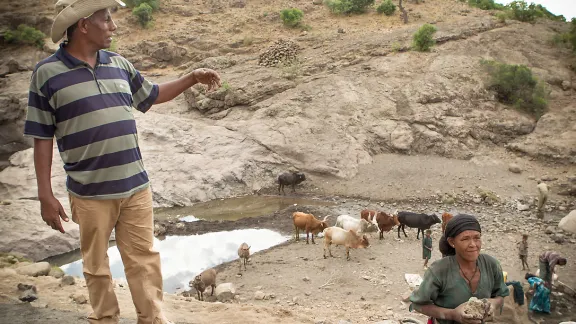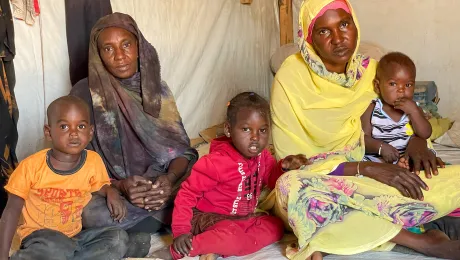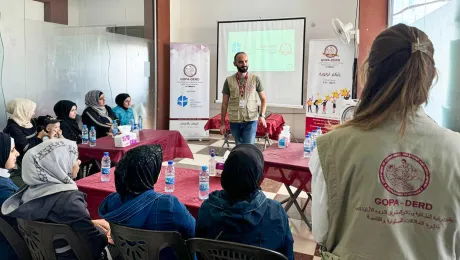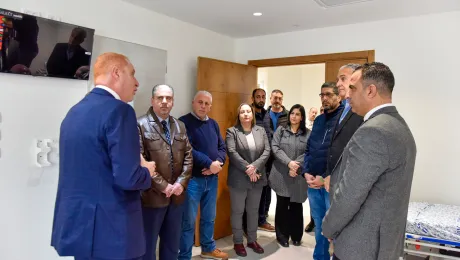
New LWF irrigation schemes will capture and divert the streams that have a higher volume of water. Photo: LWF Ethiopia
New irrigation schemes help Ethiopian farmers deal with climate change
(LWI) - For Kassa Adane, 63, every day is a day to be grateful for the gift of water. The farmer in North Wollo, Ethiopia, and father of eight children is one of 94 participants in an irrigation project run by The Lutheran World Federation (LWF) in Midaghe kebele (neighbourhood) of Lasta district, North Wollo Zone, Ethiopia.
Adane owns about one hectare of land. For centuries, people have farmed there. But because of climate change, rainfall has decreased and people have to deal with droughts more frequently. The amount of water he and his fellow farmers had at their disposition to water crops has significantly decreased. The farmers are worried.
Irrigation makes a difference
North Wollo is one of the regions severely affected by extreme weather and climate change. The El Nino phenomenon, already a trial for local farmers, along with climate change, leads to extreme weather. Spring rain is essential for planting. None fell last year. The summer rains came too late and were less than expected and necessary for crop growth. Failed harvests were the result.
Adane was one of the lucky ones.
As part of the LWF project, the farmers built a cement irrigation channel. Adane moved from rain-fed irrigation to a system by which he diverts water from small springs, and grows different vegetables and crops on his plot of land. "The advantage of having access to irrigation water as compared to those who haven't is incomparable,” he says.
I never knew that there is a World Water Day which is observed worldwide. Given the shortages of water we are facing today, this day needs to be observed more than any other holiday that we have in a calendar year.
“Some farmers who relied on the rainfall for agriculture had a bad harvest because of the drought this year. They have been forced to migrate to other areas in search of job opportunities. I'm one of the lucky farmers who have access to irrigation water and have so far escaped from being displaced."
Life-changing
Apart from the fact wells are drying out, and that farmers lost a lot of water to canal seepage, traditional irrigation was very demanding on the local population, Adane says. “It is a very demanding task and requires a lot of continued work to divert the water and irrigate the farmlands,” he says.
“The new construction will capture and divert the streams that have a higher volume of water and with the additional construction of water reservoirs to store water at night, the water will be enough to irrigate their farmlands. Unlike the traditional canal we had, the cement construction will significantly reduce seepage and increase water efficiency.”
Once the irrigation scheme becomes functional, Adane plans to grow high value crops. “My life and the lives of my neighbors will change for the better,” he says. However he tells his grandchildren not to take the irrigation water for granted: "We should use water wisely and economically.”
Contribution by Abdelkader Ibrahim, food security and livelihoods officer with LWF in Lalibela, Ethiopa. Edited by LWF Communications.


